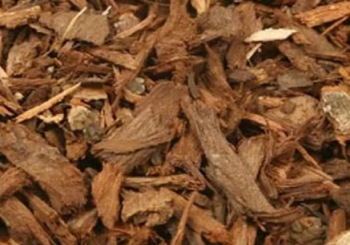If you’ve searched for Saw Palmetto you’ve probably seen a lot of results for Pygeum as well. Are the two supplements related and do they have similar benefits? Is pygeum better than saw palmetto? Read below to find out.
What is Pygeum?
Pygeum, also known as Pygeum africanum or African plum extract, is a herbal remedy derived from the bark of the Prunus africana tree native to central and southern Africa. It has been used for centuries in traditional medicine to address various health conditions. What is pygeum used for?
- Prostate health: Pygeum is primarily known for its potential benefits in supporting prostate health. It contains active compounds such as phytosterols, pentacyclic triterpenes, and ferulic acid, which are believed to have anti-inflammatory and anti-androgenic properties. These properties may help reduce the symptoms associated with benign prostatic hyperplasia (BPH), a non-cancerous enlargement of the prostate gland, including urinary frequency, urgency, and nocturia (nighttime urination).
- Urinary function: Pygeum may help improve urinary function by reducing inflammation and inhibiting the production of certain hormones that contribute to prostate enlargement. It may help relieve urinary symptoms like weak urine flow, incomplete bladder emptying, and dribbling.
- Anti-inflammatory effects: Pygeum has been found to exhibit anti-inflammatory effects due to the presence of specific compounds. This may be beneficial not only for prostate health but also for other conditions where inflammation plays a role.
- Antioxidant properties: Pygeum contains antioxidants that help protect cells from oxidative stress and damage caused by free radicals. Antioxidants are important for overall health and may contribute to the prevention of various diseases.
- Sexual health: Some studies suggest that pygeum may have positive effects on sexual health. It has been reported to enhance sexual function, libido, and fertility in men. However, further research is needed to establish its efficacy and mechanisms of action in this regard.
It’s important to note that while pygeum shows promise in supporting prostate health, it should not be considered a standalone treatment for serious prostate conditions. If you have any concerns about your prostate health or other health issues, it’s always advisable to consult with a healthcare professional before starting any new supplement or treatment regimen.
How Does Pygeum Compare to Saw Palmetto
Both pygeum and saw palmetto are natural remedies commonly used for supporting prostate health and addressing symptoms associated BPH. While they have some similarities, there are also differences between the two. Here’s a comparison of pygeum and saw palmetto:
- Source: Pygeum is derived from the bark of the Prunus africana tree, while saw palmetto comes from the berries of the Serenoa repens plant, primarily found in Florida.
- Active components: Pygeum contains phytosterols, pentacyclic triterpenes, and ferulic acid, which are believed to contribute to its beneficial effects. Saw palmetto contains fatty acids, plant sterols, and flavonoids, which are considered to be its main active constituents.
- Prostate health: Both pygeum and saw palmetto have been traditionally used to support prostate health and alleviate symptoms associated with BPH. They are believed to work by inhibiting the production of certain hormones that contribute to prostate enlargement and reducing inflammation.
- Scientific evidence: Saw palmetto has been more extensively studied compared to pygeum. Numerous clinical trials have investigated the effectiveness of saw palmetto in managing BPH symptoms, and it is one of the most commonly used herbal remedies for this purpose. Pygeum has also shown promising results in some studies, but the evidence base is not as extensive.
- Forms and administration: Pygeum is commonly available as an extract or supplement in capsule or tablet form. Saw palmetto is available in various forms, including capsules, tablets, liquid extracts, and powders.
- Side effects: Both pygeum and saw palmetto are generally considered safe when used as directed. However, individual reactions may vary. Some potential side effects reported with saw palmetto include mild gastrointestinal symptoms like stomach upset and diarrhea. Pygeum is generally well-tolerated, but some individuals may experience mild gastrointestinal disturbances or allergic reactions.
- Personal response: As with many natural remedies, individual responses to pygeum and saw palmetto can vary. Some people may find one more effective than the other in addressing their specific symptoms.
Does Pygeum Work?
There have been several studies investigating the potential benefits of pygeum, particularly in relation to prostate health and urinary symptoms associated with benign prostatic hyperplasia (BPH). Here are some examples of studies that have examined the effectiveness of pygeum:
- In a randomized, double-blind, placebo-controlled trial published in the Journal of Urology, 263 men with moderate to severe BPH were treated with pygeum extract or placebo for 60 days. The study found that pygeum significantly improved urinary symptoms, including nocturia, frequency, and residual urine volume, compared to the placebo group.
- Another randomized, double-blind, placebo-controlled trial published in the British Journal of Urology involved 44 men with BPH who were treated with pygeum extract or placebo for 60 days. The study found that pygeum significantly improved urinary symptoms, including frequency, nocturia, and peak urinary flow rate, compared to the placebo group.
- A systematic review and meta-analysis of 18 randomized controlled trials, published in the journal Cochrane Database of Systematic Reviews, found that pygeum extract was more effective than placebo in improving urinary symptoms and urinary flow in men with BPH.
- In a study published in the journal Current Therapeutic Research, 209 men with BPH were treated with pygeum extract or placebo for 60 days. The study found that pygeum significantly improved urinary symptoms, including frequency, nocturia, and urgency, compared to the placebo group.
- In a study conducted by Hutchinson et al. (2007), 2559 patients diagnosed with benign prostatic hyperplasia (BPH) were compared based on the treatments they received, while another group of patients was only supervised without any specific treatment. The treatments administered to the first group included finasteride, saw palmetto, tamsulosin, and pygeum. After one year, significant improvements were observed in the group receiving treatment compared to the untreated group, although the extent of improvement varied depending on the specific treatment. Those who underwent pygeum treatment experienced a 43.3% improvement, which was comparable to the results seen with finasteride (57% improvement). Additionally, patients receiving pygeum africanum exhibited a slightly better improvement rate compared to those treated with saw palmetto (42.7%).
While the studies suggest that pygeum extract may be effective in improving urinary symptoms associated with BPH, further research is needed to determine its long-term effectiveness, optimal dosage, and potential side effects.
Pygeum is also used by some to increase ejaculate volume and is claimed to be effective when coupled with zinc and lecithin
Saw Palmetto or Pygeum
Both supplements have similar qualities and alleged benefits. Both are generally considered safe and are non-prescription. Saw palmetto has had more studies done while pygeum evidence base is relatively sparse. Both have minimal side effects in general although there are always anecdotal stories of individuals experiencing more severe issues such as loss of libido but these are somewhat rare.
Pygeum tends to available in powdered form which isn’t that useful for topical application. Saw palmetto on the other hand is most potent in an oil extract form which is also handy for application to the scalp when treating hair loss.
So, which should you take? While saw palmetto seems to be the most popular with regard to hair loss, as the abovementioned study showed, pygeum may be just as effective. It seems to be similar to saw palmetto for treating urinary issues as well. Each individual reacts differently based upon their general health, hormone levels, other physical issues etc. So, one option is to take one or the other and assess the benefits (or lack thereof), then take the other and compare them. Another option is to take both. Remember, there may be an overlap in active ingredients so the dosage should be adjusted with that in mind. There are supplements on the market that include both saw palmetto and pygeum which makes for an easy solution.


